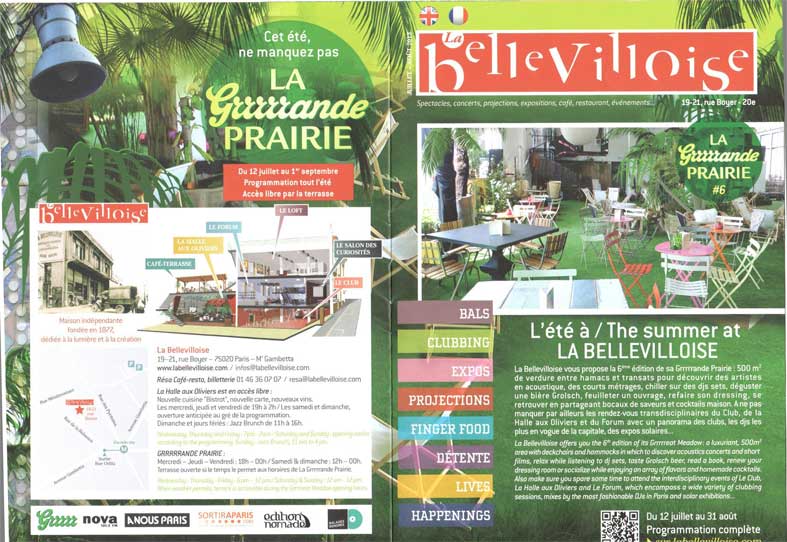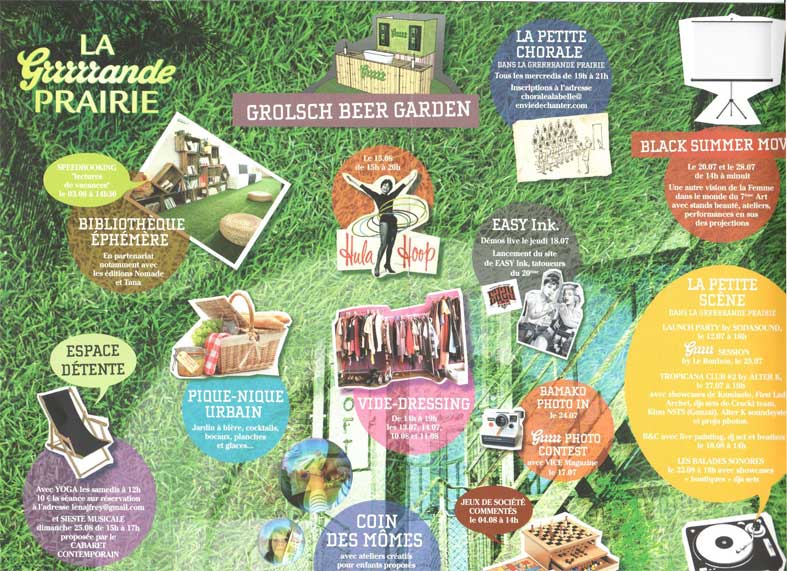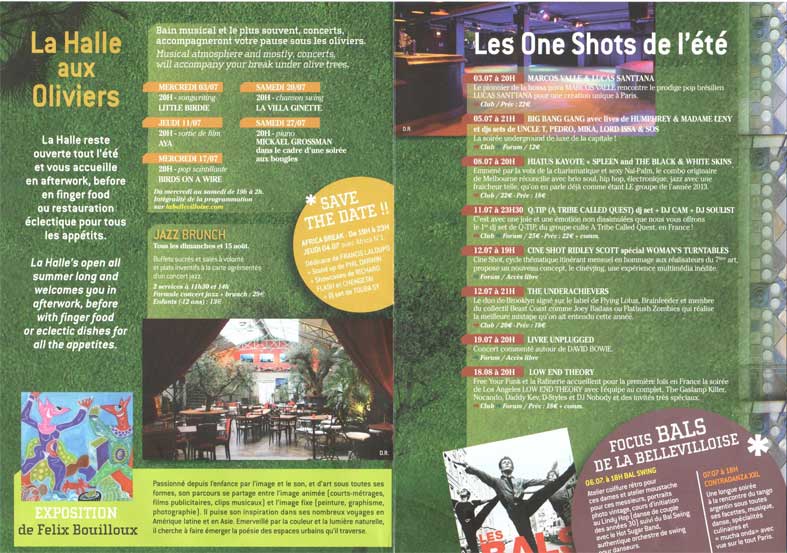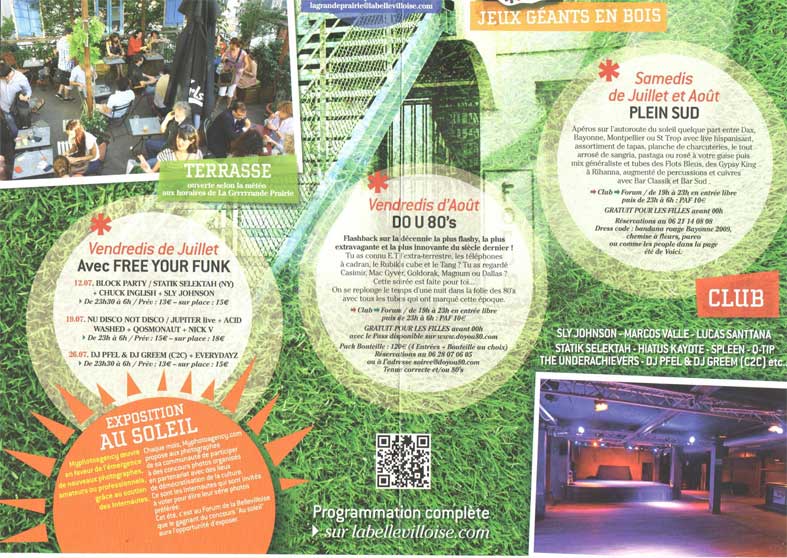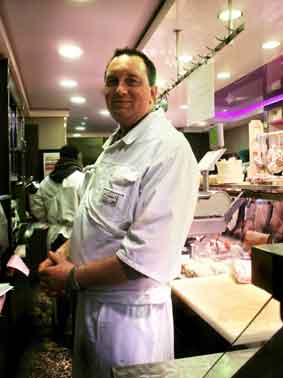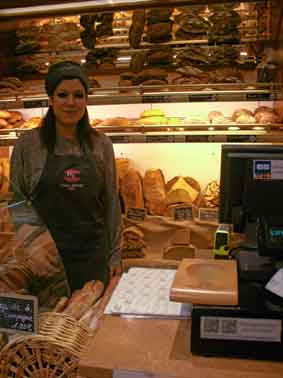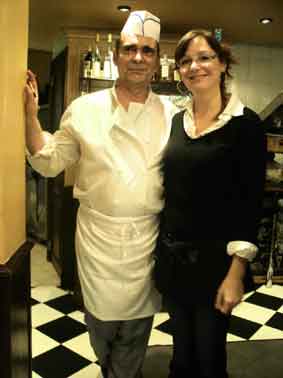| |
The Traditional Village for a
Future Life
Grundtvig project
2012-2014 |
Partners
Vakaru Lietuvos verslo kolegija LT-Lithuania
ASOCIATIA CULTURALA GAUDEAMUS RO-ROMANIA
I.T.I.S. E. Majorana IT-ITALY
E-JUNIORS association FR-FRANCE
SSM GLOBAL TRAINING SERVICES LTD CY-CYPRUS
Turgutlu Halk Egitimi Merkezi TR-Turkey
Asociacion Emprende Empleo ES-SPAIN
Interest Marketing OU EE-ESTONIA
Stowarzyszenie na Rzecz
Edukacji "Pomost"
PL-Poland
D.1 SUMMARY
The project
"The Traditional Village for a Future Life" addresses to the youth
and people with the age 50+ who are unemployed or are at risk of exclusion
and raises the motivation for learning of the disadvantaged economic, social
and cultural groups and their inclusion in the ordinary life, especially for
the people who havenít succeeded in reaching the basic education.
The learners/trainees
will have the opportunity to learn about customs, traditional jobs and crafts,
the way of living in the traditional village in the European countries.
In this
respect, we will organize a certain number of national and international workshops
and fairs in the form of an old traditional village in which the trainees
will learn how to make ceramics, household items, metal crafts, woodwork,
traditional costumes, traditional drinks and food. The project also supports
initiative and entrepreneurship which can help the learners/trainees to begin
small family business in the field of traditional handicrafts.
Electronic
maps, web sites, brochures, network communication realized by trainees will
promote the idea of "cultural tourism" and make different areas
be known from a cultural point of view in Europe and ensure the intercultural
dialogue.
Collaborating
during workshops, communication is assured among trainees and trainers in
their own language and in foreign languages.
Learning
new job skills, improving ICT competences, communicating in foreign languages,
will help for the social and economic inclusion of the adults from the target
groups.
The project
is also a way for teachers/trainers to improve their pedagogical approaches
and their methods of working with adults in a non-formal and informal educational
network through Europe.
D.3. PROJECT OBJECTIVES AND STRATEGY
- the concrete objectives of the partnership:
a) to design
a pedagogical model of intervention for raising of the motivation for learning
of† the social and economical disadvantaged
groups of adults and their social inclusion, especially for those who havenít
succeeded in reaching the basic education;
b) to provide the information about the way of living in the traditional
village in the partner countries to the learners/trainees in order to assure
for them the intercultural dialogue and knowledge of other national cultures;
c) to develop skills and abilities of the disadvantaged groups
of adults in handicrafts, multimedia, ICT, communication in foreign languages
and entrepreneurship;
d) to build an intercultural communication network with the help
of which handicraft workshops and fairs can be set up in Europe by the trainers,
trainees and local authorities.
- subjects or problems we intend to address:
a) we are going to address to folklore, culture and traditional
crafts in order to improve the knowledge of the learners/trainees in other
European cultures;
b) ICT and
audiovisual applications;
c) the pedagogy and methodology of working with adults.
d) intergenerational networking linked to territory and roots.
e) entrepreneurship
- approaches to achieve our objectives:
a) Each
partner will ensure† conference
rooms and workshops to set up handicraft workshops, ICT and foreign language
courses in order to provide the necessary information, skills and abilities.
b)† trainers from the partner
organizations will provide† knowledge,
skills and information for the established objectives in the fields of handicrafts,
ICT, entrepreneurship and foreign languages.
c) Each
partner will apply the new methodology of intervention to a number of 10 to
20 learners/trainees who will have the opportunity of participating in the
project activities.
d) We are
going to create the necessary context in order to set up national and international
workshops and fairs, exhibitions. We exchange materials and good practice
between trainers and trainees, test different training methodologies and approaches,
and built the web site of the project.
e) Direct
communication in foreign languages is assured among the participants during
project meetings, conferences.
f) We will
also evaluate and report the progress of the project in each organization
and in the whole project every trimester.
g) we will promote small villages, homemade goods with using brochures,
local media, www
Meetings
Kickoff
in Craiova October 2012 |
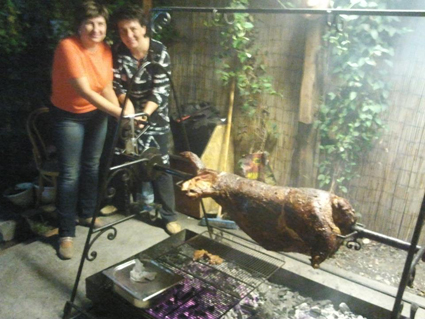 |
Pictures
Project
présentation
Gaudeamus
association presentation
Minutes
Meeting
in Iraly
Agenda
Minutes
Photos
French
presentation about GUINGUETTES
Meeting
in Lituania - July 2013
Agenda
Photos
Minutes
Meeting in Turkey Novemeber2013
Agenda
Feedback from Betty
Feedback
from Charles
Photos
Minutes
Meeting in Spain
Agenda
French
Presentation
Minutes
Official minutes
Minutes with photos (FR)
Meeting in Paris
Agenda
Minutes
Minutes
- final version
Meeting In Tallinn
Agenda
Minutes
Photos
Meeting in Larnaca
Minutes
D.4. RESULTS AND
OUTCOMES
Dissemination
Output and activities
Dancing in Paris
This
is my village and these are my customs
Map
of the GUINGUETTES in Paris
Visit
Romantic Paris
Google
aps tutorial
Rue du Faubourg
du Temple
BELLEVILLE
Le vieux Belleville
Table
d'orientation de Belleville
Tour
Edith Piaf
BlogBelleville
Ambiance
Paris Belleville!
Chant
: un gamin de Paris
Map
of traditional Belleville
La Bellevilloise :
Traditional dress
Traditional
items and food
Partners : in Spain
Touristic attraction

PROJECT IMPLEMENTATION
F.1. DISTRIBUTION OF TASKS
The distribution
of tasks between the participating institutions is made taking into account
the competences, expert knowledge and experience as they are revealed in the
self-presentation written by each organization.
Each organization
coordinates the project meeting activities in its own country.
1) Lithuania
coordinates the whole project, the e-learning activities, supervises the publication
of the brochures, makes the general plan for the international workshops and
fairs, coordinates the activities of mobility, assures a good communication
and information sharing of the project level, writes the general reports of
activity, publishes the new methodology of intervention in the education of
adults from disadvantaged groups.
2) The Romanian
partner moderates the acitivites on the web site
and assure the ICT support for the video products.
3) The Italian
partner will make evaluation questionnaires, considering the quarterly info
sent by each partner institution.
4) The French
partner will take pictures during the mobilities
and coordinates the activity "cultural tourism in images" on the
web site.
5) The partner
from Cyprus will coordinate the international exhibitions with traditional
food and drink in Europe.
6) The partner
from Turkey will coordinates and gather information
for the publishing of the final form of the brochures.
7) The Austrian
partner will coordinate the activity of filming during international workshops
and fairs in order to build a film database.
8) The Spanish
partner writes a plan of dissemination of the activities on the project level.
9) The Estonian
partner will realize the electronic maps and CDs for the adult educational
package.
10) Polish
organization will prepare the last evaluation meeting, will be responsible
for collecting partial evaluation and conclusions, will look after European
standard of management in the partnership, will propose
the way of economical development of small villages and cities.
The active
involvement in the common partnership activities is assured through the working
plan, through the distribution of certain tasks for each organization when
realizing joint products, during the project meetings and/or on the e-learning
platforms.
F.2. COOPERATION AND COMMUNICATION
The partner
institutions have similar and different tasks. They will cooperate taking
into account these tasks. They will transfer data and information to the other
partners as established in the work plan for a good collaboration.
New technologies
and instruments will be used for a fruitfull collaboration. The e-mail is the main means
of communication between trainees, trainers and organizations.
During the
first project meeting we'll established the principle of cooperation, responsibility
and decision. The final decisions will have been taken during the other project
meetings and reports of evaluation will be registered then.
The communication
between the partners during the partnership period and between the transnational
meetings will be assured by the use of new information and communication technologies:
e-mails, discussion forum, chat, telephone, fax.
The quarterly
reports will also be a means of communication which will help us to understand
the progress of the project.
The web
site of the project will contain the programme of
the activities in the two-year project and will keep in touch the partner
institutions with the necessary changing and promotion of new activities.
All the
questions concerning the project or the coordination itself should be discussed
and solved between the teachers involved and the coordinator by personal email.
F.3. PARTICIPANTS' INVOLVEMENT
Planning:
After the
selection of the learners, each partner institution will have workshops during
which the learners will be asked to answer questionnaires and will have direct
discussions with the trainers teachers closely related to the objectives of
the project and the way they should be approached. The learners will decide
together with their teacher trainers a programme
and tasks for each learner, when and where a leraner/a
group/all the learners are going to be involved in the national and international
activities taking into account their skills and abilities.
The learners
will participate in the planning their work sessions.
Implementation:
- doing
research about the selected topics;
- writing and editing the collected information;
- promoting
the traditional handicrafts and the other end products in the national and
international workshops and fairs;
- taking
photos and editing them/ making videos (including the writing of the storyboard);
- communicating
with learners from other European countries;
- working
with other adults interested in the promotion of traditional handicraft and
cultural tourism.
Evaluation:
After the
each main activity of the project, the learners will answer questionnaires
in order to find out the degree of satisfaction for the carried on activities
and will communicate directly with the trainers concerning the improvement
of the activities of the project whenever necessary.
The trainers
will be involved in the planning of the activities establishing programmes and priorities of the activities concerning the
proposed courses, worhshops and fairs.
The partners
will also implement new methods of working with adults through sharing experience
and practice.
In each
country teachers will be involved in the guidance of planning the studerntsí research work, ICT communication, cultural activities
and workshop handicrafts during the exchange visits.
Evaluation
of the activities will be realized each partner through quarterly reports
and centralized by the coordinating institution.
F.4. INTEGRATION INTO ONGOING ACTIVITIES
Each partner
will apply and adapt the new methodology written in common as a joint product
to the needs of organizations.
LITHUANIA:
The team will provide knowledge and apply the cultural tourism at different
levels and subjects. Other teachers will benefit of the training programme insuring a better impact in the educational community.
ROMANIA:
The organization will launch courses on European culture: traditional handicrafts,
ICT and multimedia in the cultural tourism, entrepreneurial education and
English language for people who need help in this sector. Dissemination on web site of the project.
ITALY: Lessons
will be organized about the following subjects: History of economics and society
of our hometown in the last two centuries, Research of Art and crafts and
jobs under the risk of disappearance nowadays, re-using old knowledge for
new alternative competences in a European perspective. The students will make
research, select material (photographs, multimedia) in order to create a virtual
book on the site.
FRANCE:
The organization will create a curriculum for the courses dealing with digitalized
activities and also handicrafts involving juniors and seniors working together.
CYPRUS:
Working in teams with local colleagues or from other countries through Internet
networks. Use remote means of information and documentation as a real means
of running a project. Compare results so as to help disabled to manage the
access to information. English courses, intercultural education courses through
films and exhibitions.
TURKEY:
Turgutlu Egitim Merkezi will set up a project team with trainers and trainees
and promote courses of traditional arts and crafts using the final products
of the project and integrate the activities in the curriculum.
AUSTRIA:
The organization will promote courses during which the learners realize multimedia
products in the field of cultural tourism - films, electronic maps, brochures.
SPAIN: A
European approach will enrich the scope and proportionate a different life
and professional experience to the women who participate in the project. The
objectives will be promoted through intercultural education workshops.
ESTONIA:
The organization will provide courses of information in the field of cultural
tourism and handicrafts using IT solutions.
POLAND will
develop confidence in learners' abilities and own creative power, to create
opportunities to apply and broaden their knowledge through problem based learning,
to increase their motivation.
F.5†††† EVALUATION
A plan of
evaluation is made in order to know who apply the evaluation, to whom and
when and which are the instruments.
The items
for the forms, questionnaires, reports of the evaluation will be established
at the partnership level and applied on each partner institution for a general
overview.
The coordinating
institution will be in charge with centralization of the results after the
activities of evaluation made by each partner institution. A permanent evaluation
of the project will be assured.
1) questionnaire 1 applied on the trainees and trainers in order
to identify their expectings - September 2012;
2) questionnaire 2 applied on the trainees in order to identify
the grade of satisfaction after the graduation of the programmed courses -
December 2012, January, February 2013;
3) questionnaire
3 applied on the trainees after the first six months of the project in order
to identify how the trainees applied the theoretical knowledge into practice
and the level of motivation and involvement in the activities of the project
- February 2013;
4) questionnaire 4 applied to the trainers in order to identify
the efficiency of the methods applied during the activities and the progress
registered by the trainees concerning their skills and abilities - May 2013;
5) questionnaire 5 applied on the local authorities and representatives
of the communities in order to identify the impact of the activities on the
local communities - June 2013, june 2014;
6. questionnaire
6 applied on trainees and trainers in order to identify if the objectives
of the project were accomplished and if the activities had the expected impact
on the persons involved - June 2014;
7) written
reports of evaluation based on direct observation of trainers in charge in
order to measure the degree of satisfaction of the final products and the
efficiency of the international project meetings - October 2012, May, July,
September, November 2013, March, May, July 2014;
8) yearly report of activity - May 2013;
9) final report of activity - July 2014;
10) database which will provide the information about the progress
of the trainees after the end of the project - July, October, December 2014.
F . 6 †DISSEMINATION
AND THE USE OF RESULTS
In the participating
organisations:
- conferences, seminars of information after the project meetings;
- quarterly newsletter will be posted on the web sites;
- exhibitions with final products June 2013, July 2014.
In the local
communities:
- local newspaper items, radio, TV - September 12, April, October
2013, Aprilie, June 2014;
- quarterly newsletters posted on the web site of the project;
- seminars
and conferences with actors of educational policy, regional development, target
group associations, stakeholders (craft business organizations, trade associations,
associations of promotion of cultural tourism, etc), ministeries and communities; distributing materials of information
- September 2012, April, September 2013, May 2014;
- regional exhibitions with final products obtained by the trainees
June 2013, July 2014;
- workshops with examples of good practice February, October
2013, April, July 2014;
- publishing
the brochure with a new methodology of intervention in the adult education
concerning the cultural tourism, handicrafts, ICT, English language; spreading
it the communities (national and international) - June 2014.
In the wider
lifelong learning community:
- contact with different local/regional/national/European networks,
online European networks and partnership in LLP and contact with other European
initiatives during the period of our project and long after - every six months.
G.2 WORK PROGRAMME






